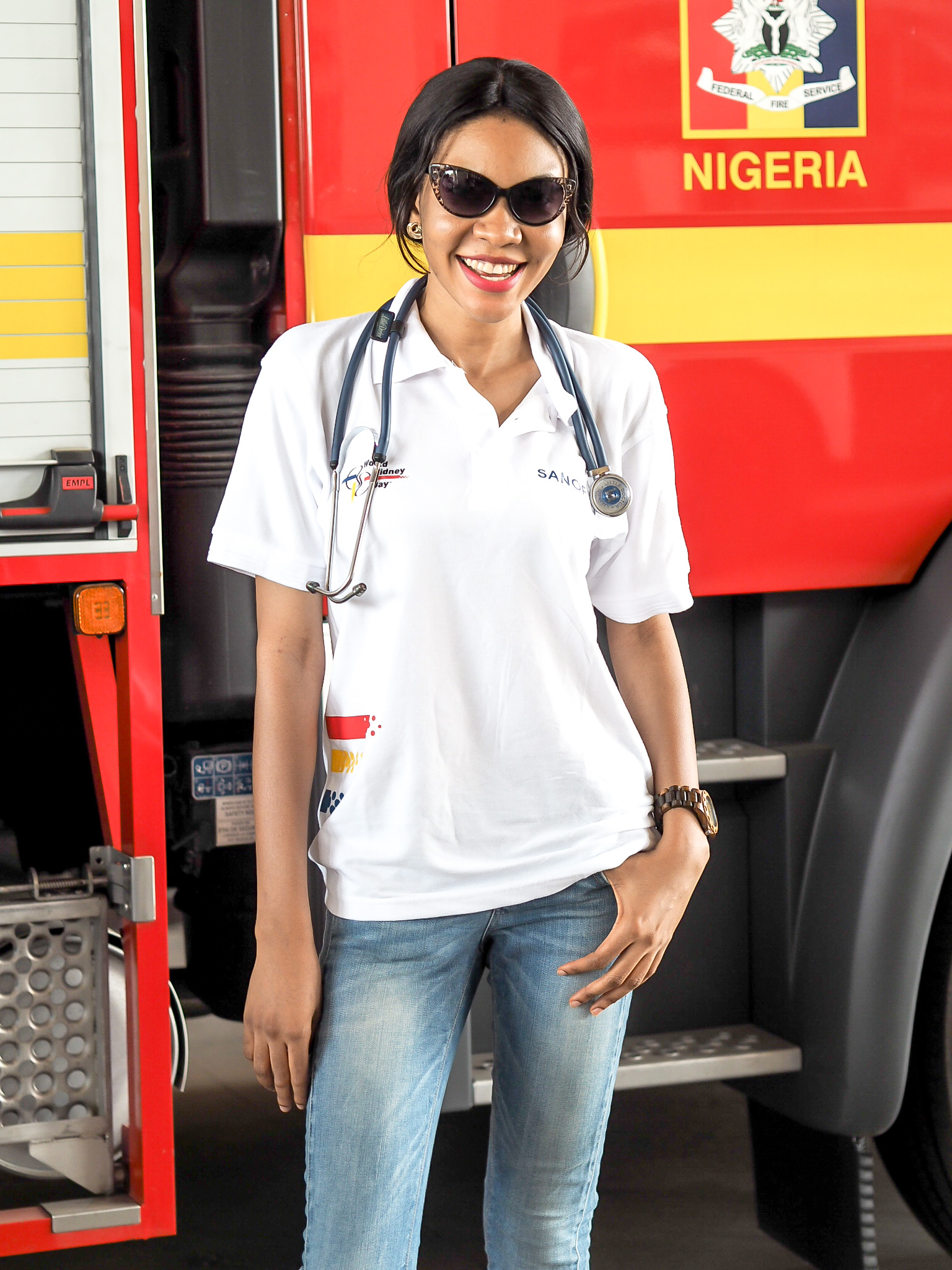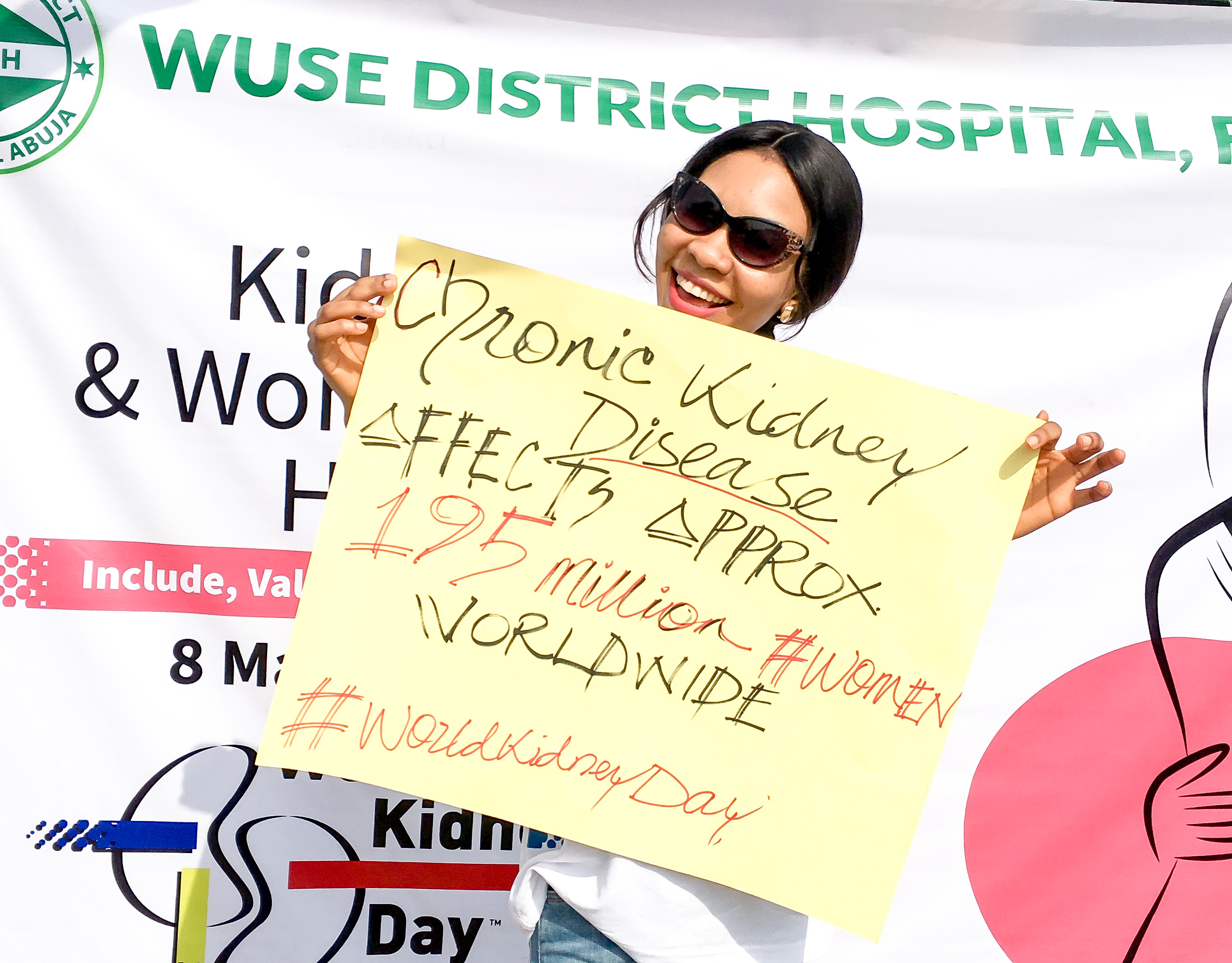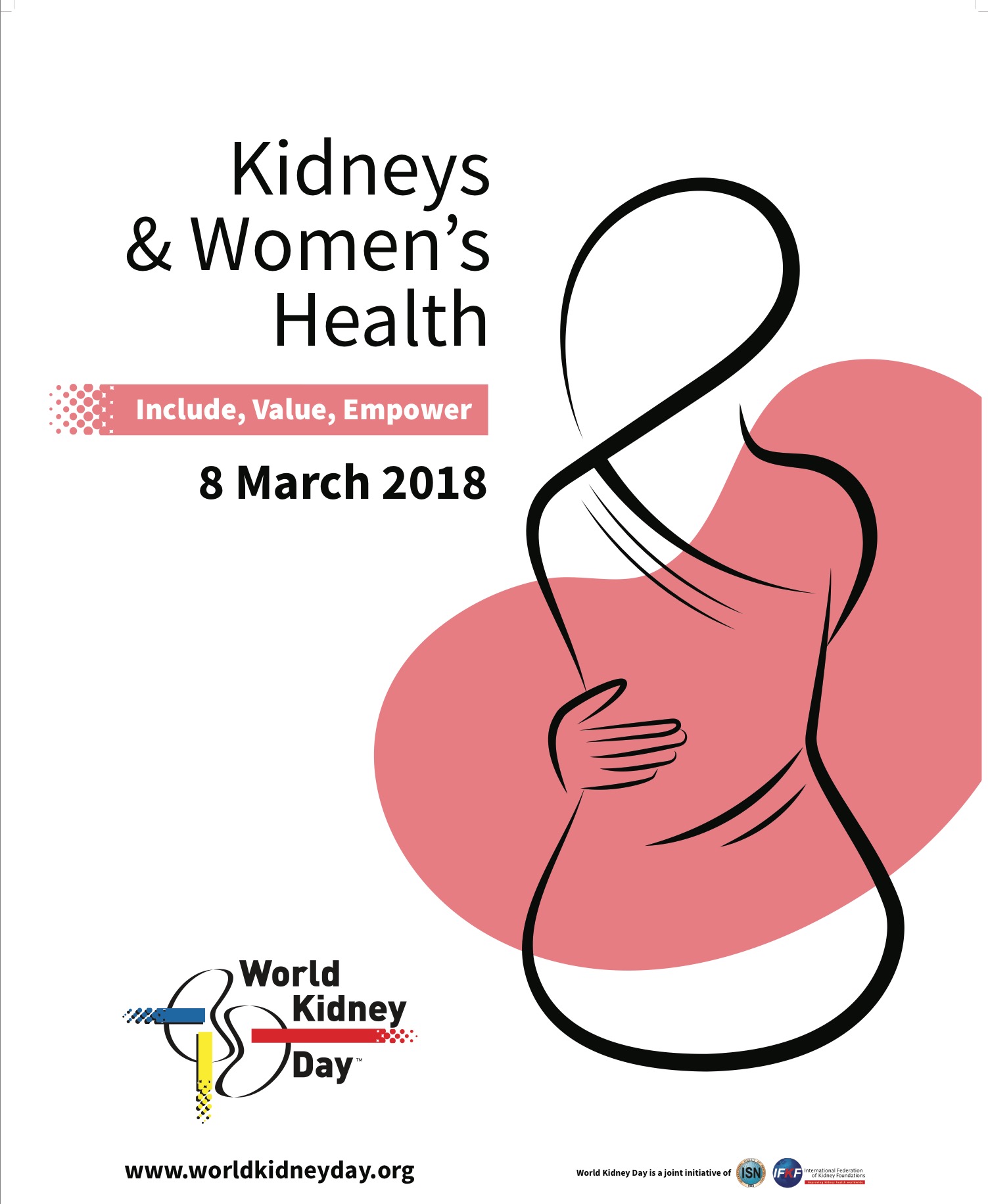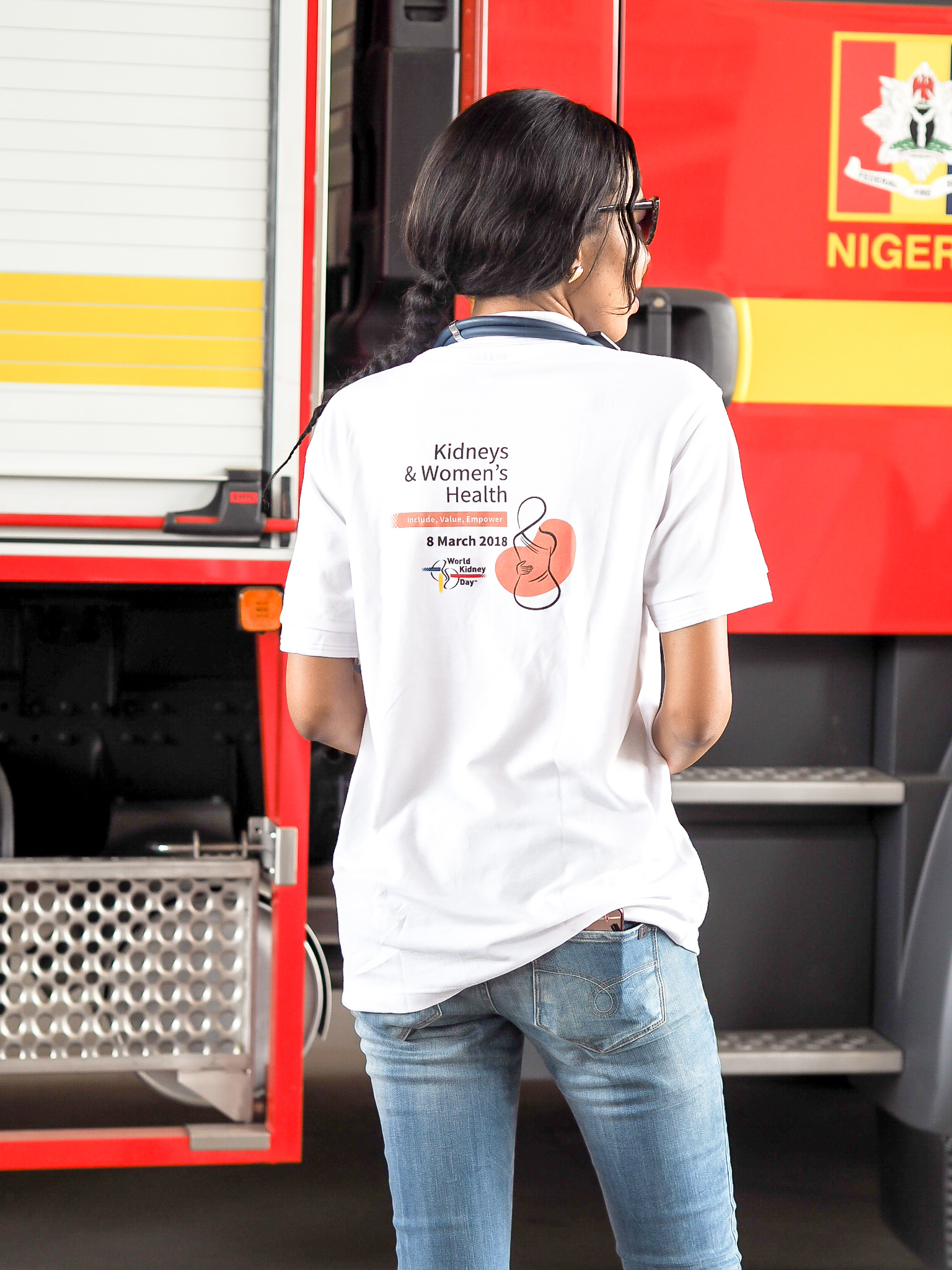Today’s post is a little different from the norm. It’s about world kidney day 2018 held on march 8th, which is also international women’s day.
This year, I celebrated international women’s day and world kidney day at Wuse district hospital’s internal medicine department. The activities the department put together involved an awareness walk round the hospital’s neighborhood led by everyone’s favorite consultant nephrologist. 
A nephrologist is a medical doctor who specializes on everything relating to/affecting the kidneys. It was really nice of the consultant nephrologist to lead the awareness walk, not a lot of Nigerian consultants can do that.
The aim of the awareness walk was to enlighten people on the need to protect their kidneys to avoid ending up with kidney diseases and to enlighten women on how chronic kidney diseases affect them. It was also to alert the public of free tests going on that day as part of screening for people at risk of kidney diseases.
Chronic kidney disease (CKD) is a worldwide public health problem with adverse outcomes of kidney failure and premature death. It affects approximately 195 million women worldwide and currently the 8th leading cause of death in women, with close to 600,000 deaths each year. 
We started the awareness walk with a mini photo session in front of the hospital’s gate which had a large banner of the kidney day. Some of the participants were doctors, the dialysis unit’s nurses and pharmaceutical sales representatives. One of the pharmaceutical companies, Sanofi sponsored our t-shirts.
I tried taking photos but the sun was too much and messed with most of the photos. During the walk, we encountered different people. From traders, taxi drivers, fire service to police officers. You’ll be surprised at how many people that are not willing to cut down on their alcohol intake even to save their life. 
After the walk, we returned to carry out the free tests which involved blood pressure (BP) check, urine test and blood glucose (sugar) test. These tests are not for confirmation of kidney diseases but a screening for some of the commonest causes of kidney diseases – uncontrolled high blood pressure & diabetes.
Trust me Lovelies, kidney diseases are expensive to treat especially when sessions of hemodialysis are involved be it acute or maintenance hemodialysis. I know a lot of you must have heard about dialysis but do you really know what it is and how much each session costs? 
The dialysis machine is like an artificial kidney used to perform the functions of the kidneys in people that have lost their primary kidney functions. People with acute kidney injuries can get better with a few sessions of dialysis whereas people with end stage kidney diseases depend on dialysis for the rest of their life or till they get kidney transplant.
Adequate maintenance hemodialysis for end stage cases are at least 3x weekly. Each of these sessions cost approximately 25 -30k naira excluding their routine medications, recurrent tests and pints of blood if indicated. Multiply that by 3 weekly, you see what I mean. Treatment of kidney diseases and/or failure is expensive anywhere in the world. Prevention is more affordable than treatment. 
Some Ways To Prevent Kidney Diseases
- Drink lots of water daily.
- Avoid taking herbal concoctions.
- If diabetic or hypertensive, take your medications regularly as prescribed and attend clinic appointments regularly as directed by your doctor. These 2 are the commonest causes of chronic kidney diseases in our environment.
- Avoid drug misuse/abuse or long term use e.g. long term use of painkillers like ibuprofen and other NSAIDs. If their use is indicated, they should be taken as prescribed by a medical doctor.
- Go to a hospital whenever you are sick or you think you have an infection. Don’t use antibiotics indiscriminately just because they worked in the past.
- Check your blood sugar, blood pressure and do urinalysis at least twice a year even if you don’t suffer from any chronic illness. Some illnesses have been reported to be accidental findings.
- See a doctor if you experience certain symptoms you think are normal – pain when urinating, pain around the lower abdominal region, frequent urination at night prompting you to wake up several times, recurrent and continuous headaches, etc.
- Lifestyle modification, moderate to low alcohol consumption, excessive & long term alcoholism is bad for your kidneys and health generally. Don’t think because your ancestors took 10 bottles of gin daily & lived for 90years, that it will be the same for you.
- If HIV positive, take your drugs daily and attend your clinic appointments regularly. Do your CD4 count check at least every 3-6months and viral load at least once every 6 months if you’ve achieved a steady state of undetectable viral load. This isn’t the case for newly diagnosed people as they need to monitor the success of their medications, theirs require more frequent monitoring.
- Visit a nephrologist if your urine output decreases despite adequate fluid intake with associated swelling of your leg.
While this is not an exhaustive post about kidney diseases and prevention, it is a reminder that they exist. Everyone needs to have checkups and avoid anything that can lead to kidney diseases. For more information about the world kidney day and other fun facts about your kidneys, check out the world kidney day website. 
Did you know about world kidney day or kidney diseases? How often do you carry out tests when you feel sick and go for medical checkups? Let’s discuss more on health in the comments.
Chronic kidney diseases affect approximately 195 million women worldwide and currently the 8th leading cause of death in women, with close to 600,000 deaths each year. Treatment doesn't come cheap at all so, it's best to prevent it. Click To TweetThanks for stopping by as usual, till my next post.
xx
